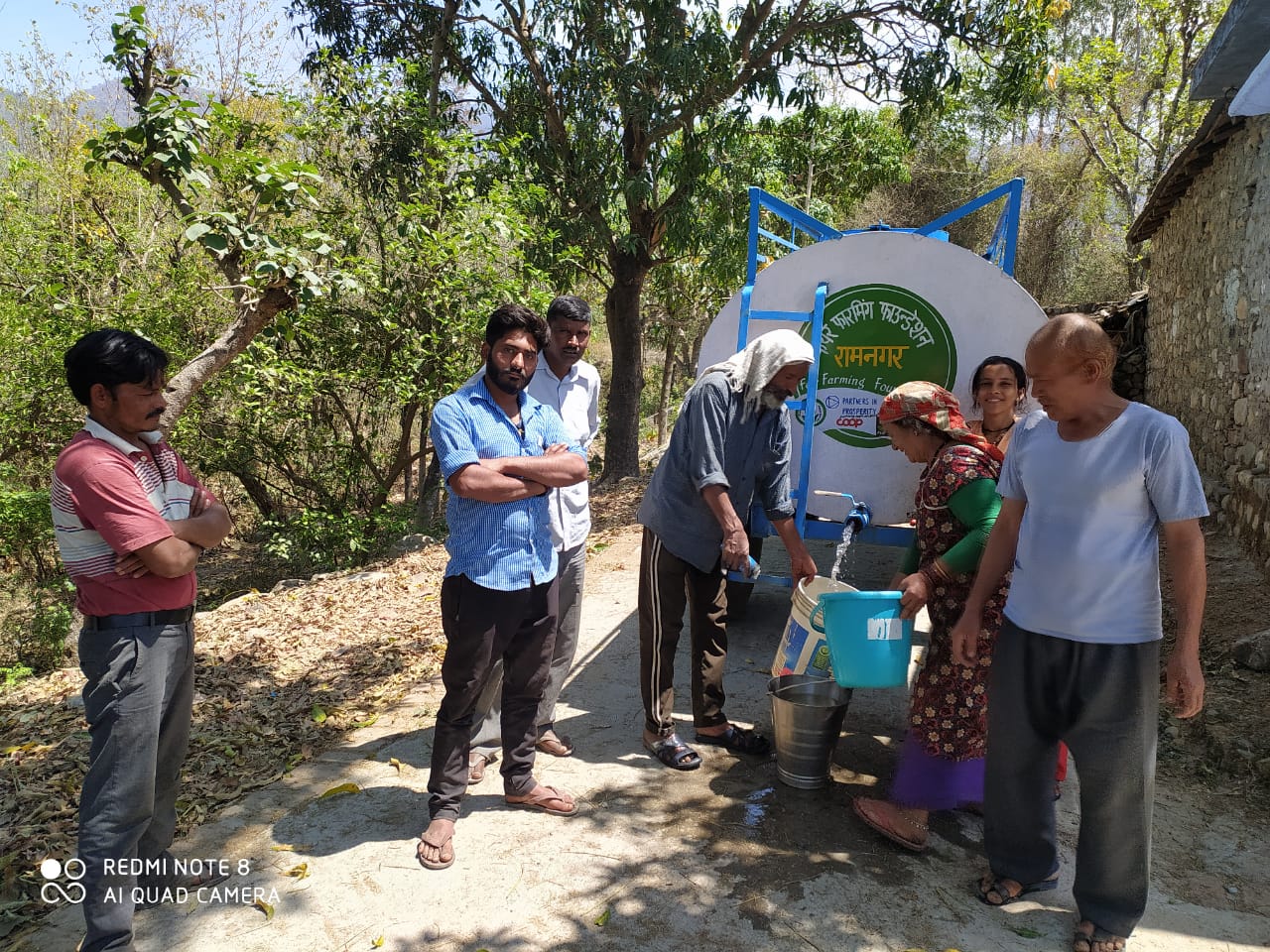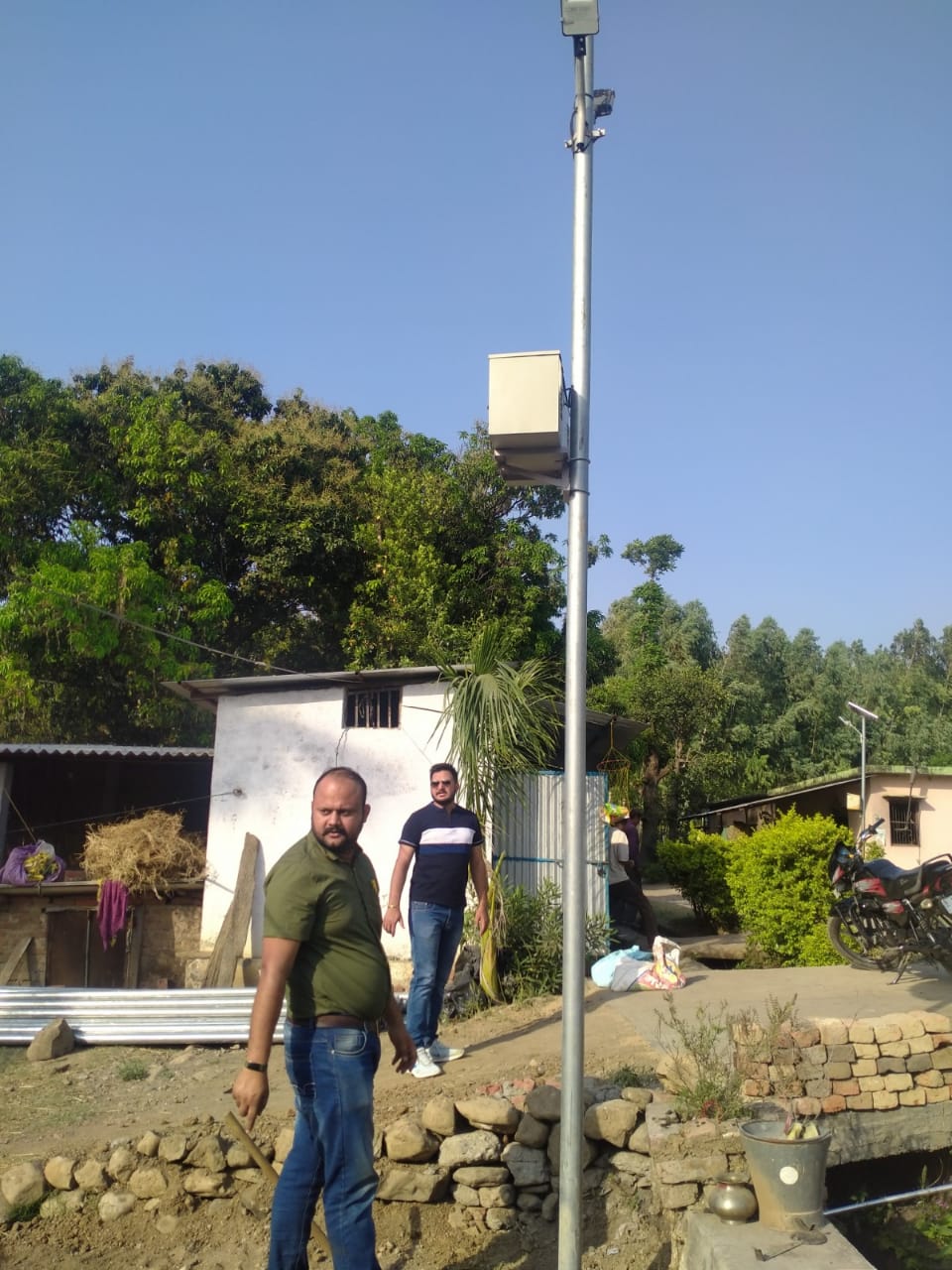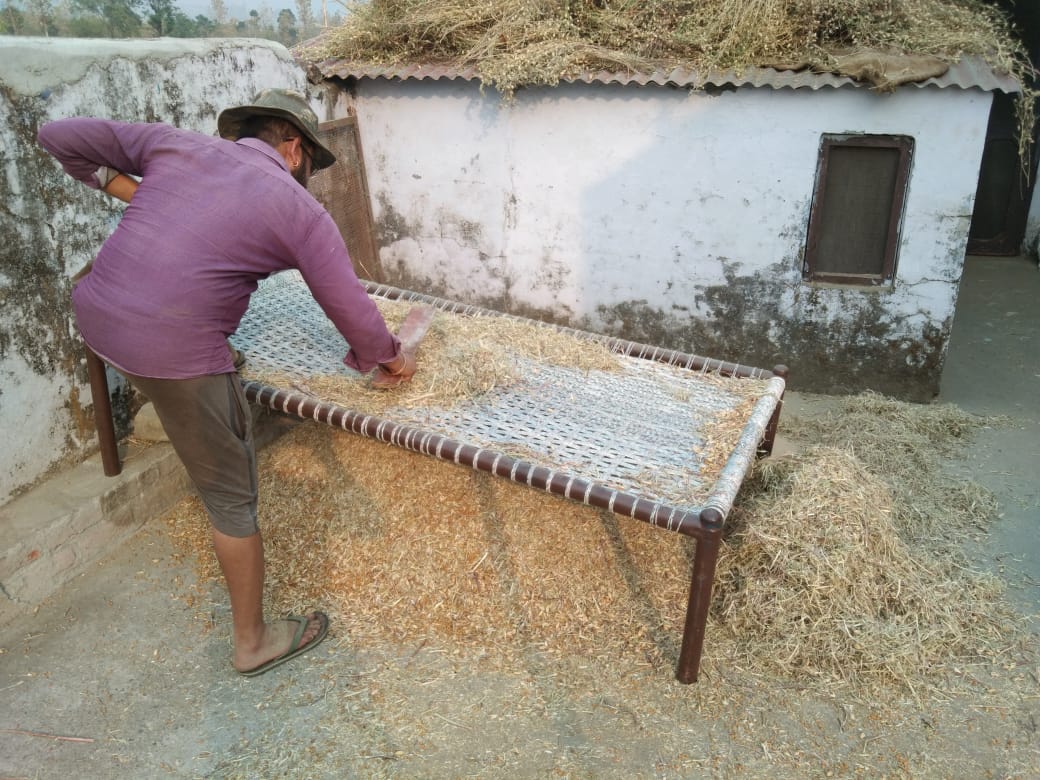The Rabi crops, sown around mid-November to April, were successfully harvested by the beginning of May. The field team completed the procurement of Rabi crops by June. This year, NBF’s focus on harvest crops is wheat, lentils, chickpea, mustard, and flaxseeds.
With the completion of the Rabi season, NBF farmers have started preparing their land for the Kharif season. The project team commenced farmer training and village level follow-ups for Soil Preparation, Green Manuring, Seed quality testing & seed availability survey in Ramnagar. Before the harvest, NBF extended support by initiating online training to the farmers about post-harvest crop management to avoid pest infestation.
Despite the rise in the pandemic, which brought about lockdown-like restrictions in May’21, NBF farmers actively participated in various Fair Trade activities. Three of the main activities include projects for Community Development, installing Reaper and Binder machines, and administering water tankers. Additionally, the company conducted post-harvest follow-ups, made farmer visits, mapped soil samples, encouraged the growth of Sesabania, and also initiated land preparation for the approaching season.
The weather remained dry supporting conduction for pre-sowing activities as per plan. As NBFL completes the harvest of Rabi crops amid restrictions, following are the key agricultural activities took place during the period:
Training and Awareness Programs
NBF prioritized and cherished their relationship with their farmers. They ensured all safety protocols during the team’s visit to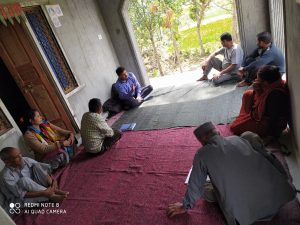 the farmers in Ramnagar village. The training and awareness generation programs were taken up in smaller groups in April and May. The team also managed to do the individual visits following safety protocols. They conducted satisfactory team meetings with over 1500+ farmers. Encouraging and raising awareness on social distancing norms, we organized mega meets with 100 – 150+ farmers at one place, and small meets with 40 – 50 farmers at another.
the farmers in Ramnagar village. The training and awareness generation programs were taken up in smaller groups in April and May. The team also managed to do the individual visits following safety protocols. They conducted satisfactory team meetings with over 1500+ farmers. Encouraging and raising awareness on social distancing norms, we organized mega meets with 100 – 150+ farmers at one place, and small meets with 40 – 50 farmers at another.
They have distributed seeds, N-95 masks, gloves, and sanitizers following all safety precautions at both the end. Regular communications with the farmers were maintained through SMS services, telecalls, WhatsApp groups, and individual advisory. They also organized online meetings for the farmers with experts.
Soil management
Soil samples were collected and soil testing kits arranged. Post mapping of soil, recommendations for the field preparation were executed accordingly. The team mapped the entire project and divided it into micro-clusters. 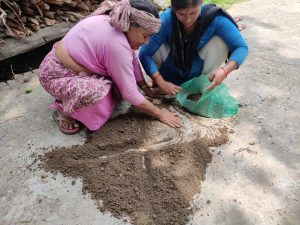 Considering it was impossible to collect 100% field samples, farm samples were taken from clusters to prepare a composite sample by the project officer. This was followed by complete soil testing procedures.
Considering it was impossible to collect 100% field samples, farm samples were taken from clusters to prepare a composite sample by the project officer. This was followed by complete soil testing procedures.
Farmers grew Sesbania
Sesbania, also known as Dhaincha is an essential green manure crop that provides a smooth effect to the Basmati crop.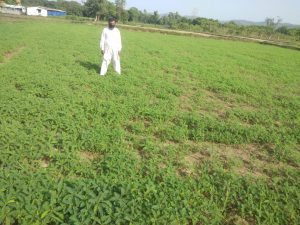 Sesbania requires rains along with little moisture for the growth of the crop. The field team motivated farmers to grow sesbania wherever the irrigation facilities were available. Due to the onset of few flash spots of rain in May, many farmers grew sesbania. The team also assisted the farmers in selecting farming areas with tube wells for more water requirements. This year the flash rains furthered a tremendous increase in the dhaincha area, promoting sesbania growth in those areas.
Sesbania requires rains along with little moisture for the growth of the crop. The field team motivated farmers to grow sesbania wherever the irrigation facilities were available. Due to the onset of few flash spots of rain in May, many farmers grew sesbania. The team also assisted the farmers in selecting farming areas with tube wells for more water requirements. This year the flash rains furthered a tremendous increase in the dhaincha area, promoting sesbania growth in those areas.
Compost training for the farmers
NBF trained the farmers to make compost. 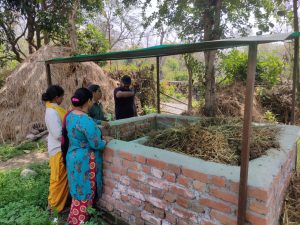 The field staff monitored the entire process so that sufficient compost is available for paddy. Their experienced field team who are members of the farmer’s family visited the farms for periodical compost check-ups. Following the requirements, the team members advised the farmers accordingly.
The field staff monitored the entire process so that sufficient compost is available for paddy. Their experienced field team who are members of the farmer’s family visited the farms for periodical compost check-ups. Following the requirements, the team members advised the farmers accordingly.
Seed Distribution
NBF conducted seed distribution to the needy farmers whose seed 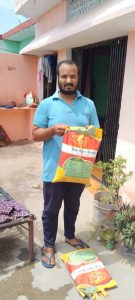 quality was not up to the mark. They ensured seed quality and germination testing before nursery preparation to undertake the proper nursery establishment.
quality was not up to the mark. They ensured seed quality and germination testing before nursery preparation to undertake the proper nursery establishment.
Fair Trade activities
With combined efforts by the community and participation from all farmers, they have installed about 45 Solar Street Lights for the community development program.
They have also installed Reaper and Binder machine for wheat harvesting to save farmer costs and educate them about its use.
They took initiatives to install Water Tanker to provide drinking water to the villagers in the Patkot area for emerging dry conditions due to scanty rainfall in the winters.

